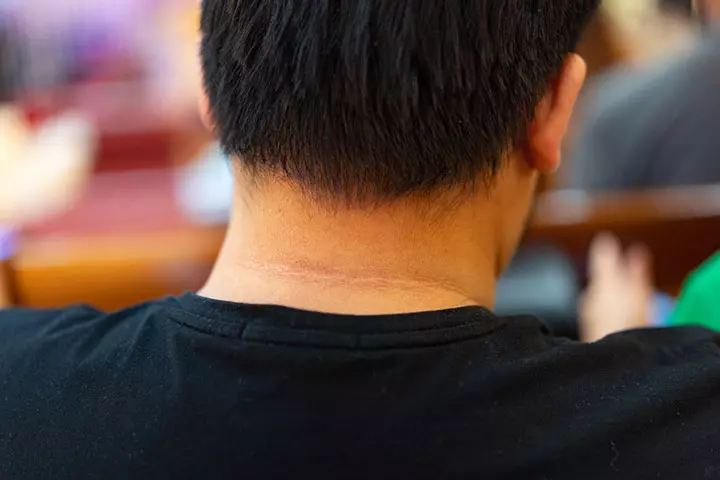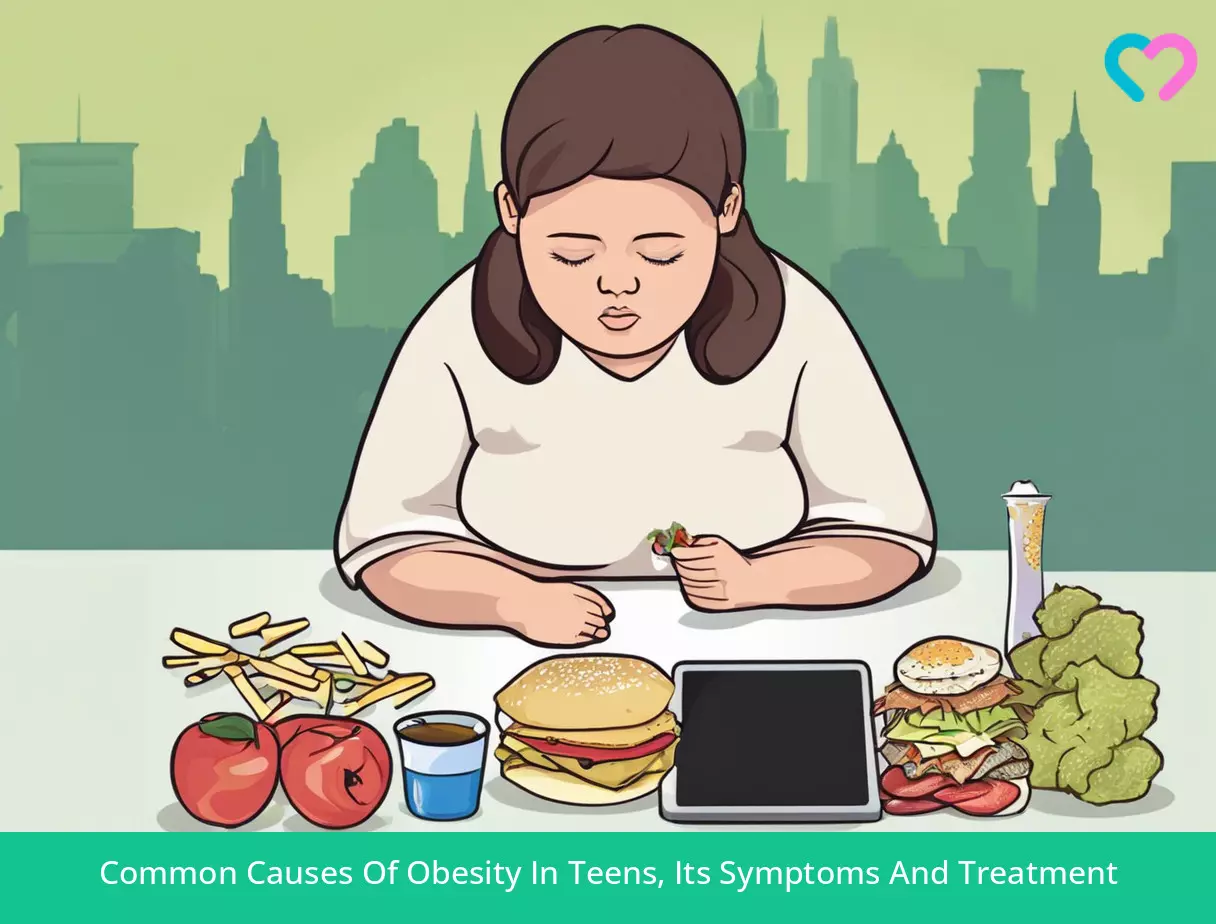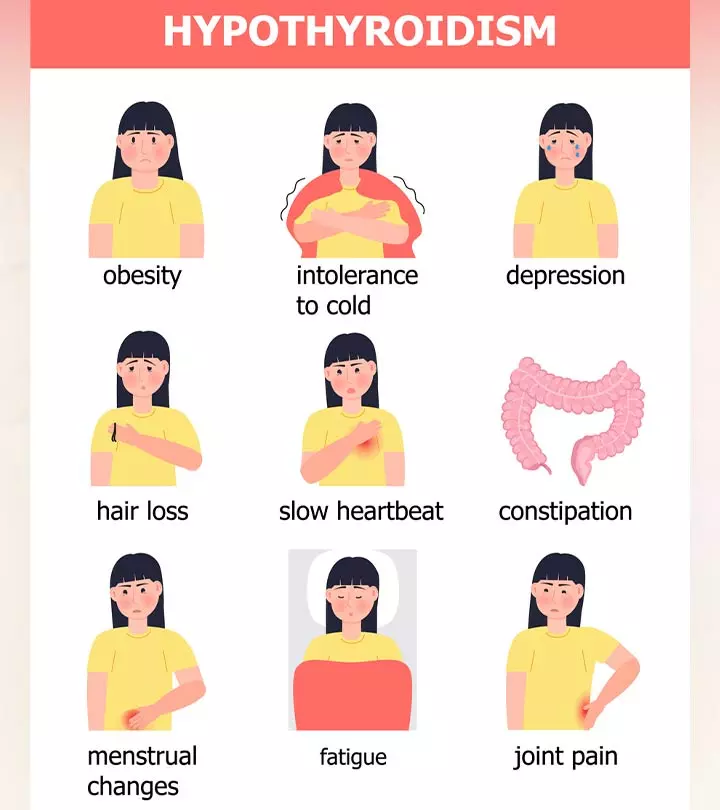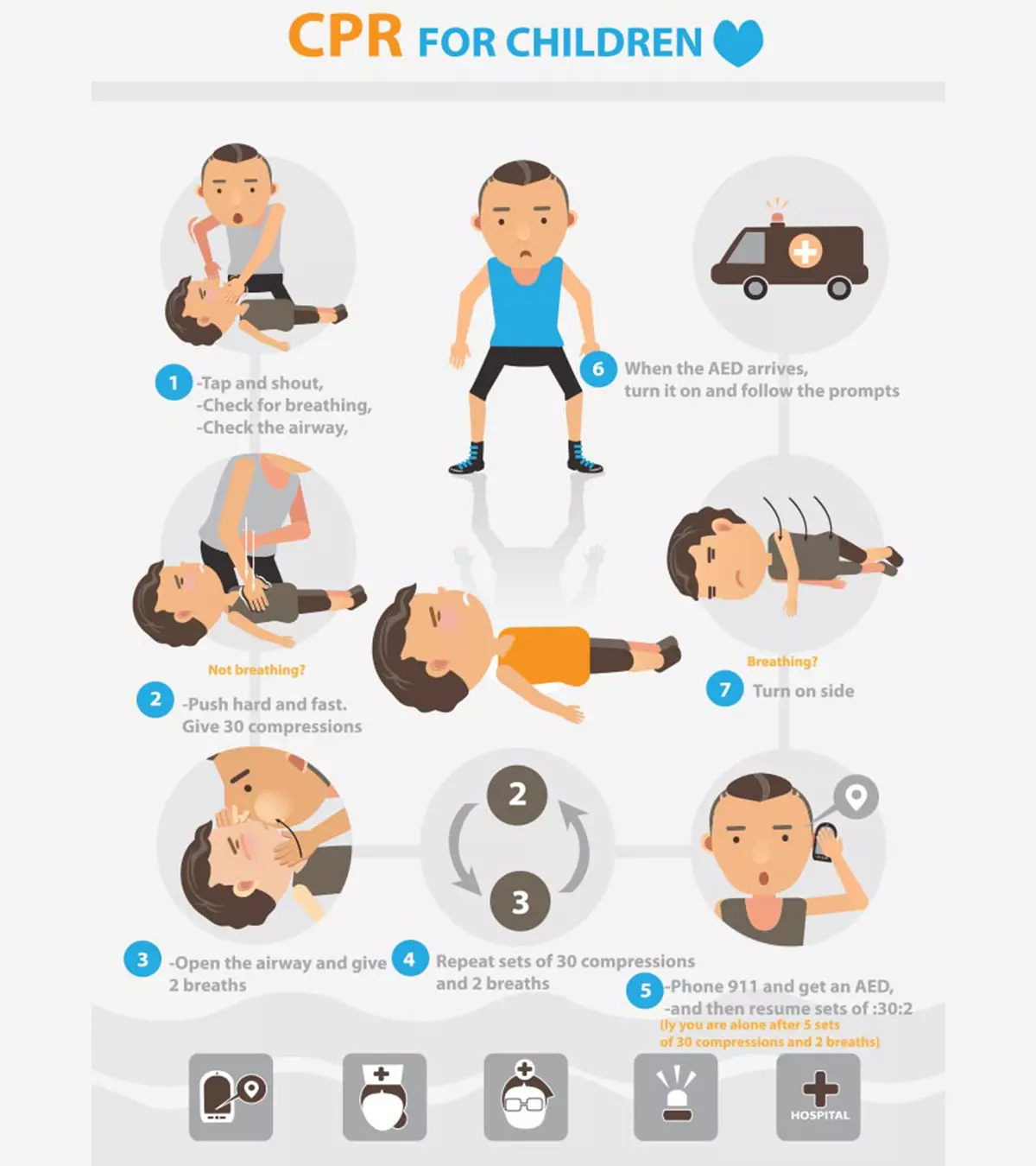
Image: ShutterStock
Obesity in teens is a complex metabolic health problem that could be caused by a combination of factors. Generally, the condition isn’t life-threatening, but it can give rise to several chronic health risks, such as hypertension and type-2 diabetes, in the long run. Over time, these chronic health problems may affect growth, development, and overall life quality. The National Health and Nutrition Examination Survey 2017-2020 report reveals that the prevalence of obesity among children and adolescents in the US is 19.7%, and in children aged between 12- and 19-year old is 22.2%.
As a parent, you may feel worried about this scenario. But thankfully, timely intervention can help teens lose excess weight and improve their overall health.
This post tells you about the possible causes, diagnoses, and treatments for teen obesity and effective ways to prevent it.
Key Pointers
- According to the CDC, teens with BMI at 95 percentile or more are considered obese.
- Teenage obesity is primarily due to genetics but can also result from an unhealthy lifestyle or underlying health issues.
- Obese teens may struggle to breathe during physical activities or develop stretch marks and darkened skin in the creases.
- Consult your child’s doctor for appropriate treatment since obesity can cause complications such as diabetes, high pressure, and depression.
When Is A Teen Categorized As Obese?
According to the Centers for Disease Control and Prevention (CDC), a teen with a BMI at or above 95th percentile for the same age and gender is considered obese(1). BMI or body mass index is one’s weight in kilograms divided by height in meters square (kg/m2).
To determine a teen’s percentile, you need to calculate their BMI and plot it on the CDC’s growth chart. Below is the interpretation of the BMI percentiles in terms of weight category.
Percentile Range For BMI
| Weight category | Percentile range |
|---|---|
| Underweight | Less than 5th percentile |
| Normal or healthy | 5th percentile to less than 85th percentile |
| Overweight | 85th percentile to less than 95th percentile |
| Obese | 95th percentile or greater |
Source: Centers for Disease Control and PreventionNote:
BMI cannot determine the quantity of body fat. If precise body fat levels are desired, then BMI should be correlated with direct methods of body fat assessment, such as skinfold thickness measurementiAn efficient and affordable way to evaluate body fat at all ages. , bioelectrical impedanceiA technique used to determine body mass with the help of electrical currents. (BIA), and dual-energy X-ray absorptiometryiA technique that measures the quantity of calcium and other minerals in the bones with the help of x-rays. (DXA).
Once a teen’s weight category is known, determining the possible causes for excess weight gain is necessary to take corrective measures.
 Quick fact
Quick factWhat Are The Possible Causes Of Teen Obesity?
Teenage obesity has a complex etiology and involves several causative factors (2).
- Genetics: According to research, 40 to 77 percent of weight variation happens due to genetic inheritance (3). Genes not only govern one’s body composition but also alter food intake by influencing hunger and satiety. Mostly, obesity occurs due to the complex interaction of genes and environmental factors such as diet and physical activity (4).
- Unhealthy eating habits: In the US, two in ten children and four in ten adults are obese (5). The major reason for it is an increase in the intake of high-calorie fast foods rich in saturated fats, salt, and sugar (6). Besides, most teens don’t follow good dietary practices and have high-calorie intake. For instance, fewer than one in ten US children eat recommended amounts of fruits and vegetables (5). Hence, unhealthy eating is one of the prominent causes of childhood obesity.

Daily calories from fast food consumption in children and teens (2015–2018)
Source: Fast Food Intake Among Children and Adolescents in the United States, 2015–2018; CDC
- Sedentary lifestyle: Lack of physical activity may contribute more to excess weight gain in teens than a high-calorie diet (7). A significant reason why teens stay sedentary is an increase in overall screen time, which is likely to increase sugary drinks consumption and decrease physical activity (8).
- Improper sleep: Research shows that sleep deprivation can cause weight gain. Teens who go late to bed, sleep for shorter durations, and have poor sleep quality tend to consume extra calories, resulting in obesity (9) (10).
- Stress: Chronic stress raises the risk of overweight and obesity in teens (11). Teen stress can result in binge eating of high-calorie foods such as chocolate and ice cream. Stress may also increase the risk of improper sleep and substance abuse, which in turn may contribute to obesity (12).
- Underlying health condition: Cushing’s syndromeiA condition marked by the presence of excessive amounts of the hormone cortisol in the body. , PCOS (polycystic ovarian syndrome), and thyroid problems in teens (hypothyroidism) are some endocrine disorders that can cause overweight or obesity, irrespective of other factors (13). Genetic conditions, such as leptin-receptor deficiencyiA genetic condition causing metabolic disorders such as obesity from early infancy. and certain medications used for treating mood disorders or insomnia, could also cause obesity in teens (14).
Besides these, socio economic issues, hormonal changes, and slow metabolism could also lead to obesity in teens.
 Did you know?
Did you know?What Are The Possible Complications Of Teenage Obesity?

The long-term health consequences of obesity in teenagers can be physical and mental, as it increases the risk of various medical complications (15) (17) (18).
- High cholesterol levels leading to high blood pressure, both of which are high-risk factors for heart diseases
- High sugar levels due to insulin resistance, which over time, develops into type-2 diabetes. If not managed correctly, diabetes could cause other health issues, such as kidney problems.
- Joint problems, such as osteoarthritis, in which the joints grow weak due to stress caused by the extra weight
- Sleep apnea in which the breathing suddenly stops for a brief duration, hindering sleep. Other breathing problems, such as asthma, may also develop due to obesity.
- Depression and anxiety that develops over time due to low self-esteem in teens, bullying, peer pressure, and poor confidence. A negative self-image could make a teen feel socially disconnected, leading to social isolation and poor school performance.
- Headaches and migraines are more common in obese individuals
- Asthma control is more difficult in obese individuals with more frequent episodes of symptoms.
Besides these, obesity increases the risk of a host of other health problems, such as non-alcoholic fatty liver disease.
How Is Obesity Diagnosed In Teens?
Diagnosing obesity is done by a healthcare provider, and often, BMI is used to identify obesity in teens (16). The BMI has two categories:
- Higher BMIs: BMIs at the 95th percentile or more for the given age and gender, or a BMI above 30, whichever is less is considered to determine obesity in teenagers. Findings in this category warrant a full health checkup.
- Mid-range BMIs: BMIs between the 85th and 95th percentiles, or BMIs equal to 30, whichever is less. In this scenario, the child should undergo a screening assessing five areas of health risk:
- Family history of obesity, diabetes, high cholesterol, and cardiovascular disease
- High blood pressure
- Total cholesterol level
- Significant annual increases in BMI
- Weight-related issues, especially those of the teen over their own excess weight.
What Are The Symptoms Of Obesity In Teens?

The appearance of excessive body fat is the main symptom of obesity. Some other common symptoms of obesity that may be noticeable in a teen are (15):
- Shortness of breath during physical activity
- Skin folds around the abdomen and back of the shoulders
- Stretch marks on the hips, thighs, and abdomen
- Dark skin folds and creases around the neck, groin, and armpit. It is also known as acanthosis nigricans.
- Gynecomastia, a condition in which the accumulation of fatty tissues occurs around the nipple and breast area in males
What Is The Treatment Of Obesity In Teens?
Treatment plans for obesity depend on the teen’s symptoms, age, overall health condition, and severity of obesity. The comprehensive treatment plan for obesity typically includes (15) (17):
- Diet counseling: A certified nutritionist plans a diet based on the teen’s age, weight loss aim, and health condition. The plan includes meal suggestions with portion control, specific nutrients, and foods to avoid. Regular follow-ups could be required to make dietary modifications when needed.
- Exercise planning: An exercise expert comes up with a workout plan for teenagers based on the teen’s age, weight, health, time availability, and interest. Just as diet, exercise planning also has time-bound weight loss targets reviewed periodically. Changes in frequency and exercise/activity type happen as per the weight loss pattern.

- Behavioral therapy: Individual or group behavioral therapy may help teens discuss their feelings about weight and other developmental issues with a mental health expert. Venting out emotions and feelings can help teens feel less stressed, develop positive self-esteem, and work positively towards a healthy weight loss.
Teens with severe obesity (morbid obesity) may be advised to follow other treatment modalities, such as medications and bariatric or weight loss surgery. A multidisciplinary team that involves doctors from various specialties, a nutritionist, and a mental health professional can help to treat and manage severe obesity in teens effectively. These treatment methods could be followed up with other traditional weight loss methods. Medication and surgery are very rarely needed in the teenage population. This is a mostly preventable condition if intervention is early enough.
Sabrina Horton, a runner, shares in her blog her transformation experience from being chubby to her present form. She says, “As a child, I didn’t start to get chunky until the first grade. My guess is that sitting at a desk at school all day coupled with being greeted at home by a lonely mom, I am an only child after all, with a bowl full of ice cream as an afterschool snack contributed to my childhood obesity.
My poor nutrition wasn’t the only reason I was overweight. One of my favorite activities as a kid was watching TV. When we weren’t watching one of my many kids shows, we were watching one of my mom’s favorites. It was our thing. It’s what we did together (i).” Later in her life, she trained as a runner and takes pride in her achievements. However, it is better to prevent obesity at the right time.
How To Prevent Obesity In Adolescents?
Preventing obesity is possible through improvement in a teen’s diet and lifestyle. Below are some tips that you could try to keep your teen’s weight in check.
- Don’t just focus on your teen. Instead, make healthy dietary and lifestyle changes for the entire family. It will keep the teen constantly motivated to maintain a healthy weight and lifestyle. Obesity tends to occur in more than one individual in the household. Even though genetics might play a role, the biggest contributing factor is the household routines when it comes to food choices and sedentary lifestyle.
- Be a role model for your teen. Avoid junk foods and maintain a healthy and active lifestyle. It will help your teen understand that healthy eating and leading an active lifestyle are ideal ways of life.
- Encourage physical activity by indulging in exercise or active play with your teen. Children and teens between six and 17 years should get 60 minutes or more of moderate-to-vigorous intensity physical activity each day (19).
- Try to limit screen time and instead guide your teen to indulge in active play or constructive activity that could keep them moving instead of staying sedentary.
- Limit the intake of refined grains. Instead, encourage your teen to eat whole-grains and cereals, such as oats, quinoa, and brown rice.
- Avoid high-fat, high-sugar processed foods. Instead, consume a lot of fresh, seasonal fruits and vegetables. Aim to eat five or more servings of fresh fruits and vegetables each day.
- Replace fruit juices, soda, and soft drinks with fat-free or low-fat milk. You can also offer fresh coconut water, lemon water, and homemade ginger ale to teens.
- Keep healthy snacks in the refrigerator or over the kitchen counter so that the teen can easily access them. Some options to offer are fresh fruit and vegetable salad, air-popped popcorn, and multigrain crackers or granola bars.
- Maintain a healthy sleep-wake routine so that the body gets ample time to rest and rejuvenate. It will keep obesity in check and also help improve a teen’s focus and concentration.

- Talk to your teen and help them handle their socioemotional concerns that cause behavioral issues, and eating disorders, such as binge eating.
 Point to consider
Point to considerFrequently Asked Questions
1. Should a teenager worry about their weight?
Teens are usually self-conscious about their weight, and it may lead to a negative body image, affecting their self-confidence (20). If your teen is within the healthy weight range, you must encourage them not to worry about their weight. Obese and overweight teens can be encouraged to lose weight in healthy ways.
2. Which teens are at risk for obesity?
The factors that may increase a teen’s risk of developing obesity include their genetics, metabolism, hormonal imbalances, socioeconomic status, and lifestyle choices (21). Several changes or combinations of attributes within these factors may ultimately influence the teen’s unhealthy weight gain, which leads to obesity over time.
3. What nutritional guidelines should teens follow to prevent obesity?
Eating a well-balanced, healthy diet containing plenty of vegetables, fruits, and whole grains, choosing low-fat or non-fat dairy, opting for lean protein sources, staying hydrated, avoiding sugary drinks, and cutting down on sugar and saturated fat intake are some prominent nutritional tips that teenagers should follow to prevent unwanted weight gain (24).
4. Are there different levels of obesity in teenagers?
A recent classification system divides obesity levels into three categories: Class I (BMI ≥95th percentile), Class II (BMI ≥120% of 95th percentile), and Class III (BMI ≥140% of 95th percentile) (25).
5. Are there any special considerations for treating obese teens?
Adopt a multidisciplinary approach involving professionals such as a pediatrician, dietitian/nutritionist, and psychologist to provide teens with personalized treatment plans. Help them prioritize mental health support to grapple with issues such as poor self-esteem and depression. Adopt family-based interventions to help the teen follow a healthy and active lifestyle. Guide them to focus on gradual and sustainable weight loss rather than drastic changes. Approach obese teens with sensitivity and support to establish trust, which is necessary to keep them on track (26).
Obesity in teens is not uncommon. Teen obesity can be caused by genetic inheritance, unhealthy eating habits, lack of physical activity, stress or anxiety, sleeping disorders, or underlying conditions such as PCOS or hypothyroidism. Teenage obesity may sometimes lead to chronic health issues like diabetes or hypertension. It also increases the risk of complications such as high cholesterol, high sugar, and joint problems. Encouraging teenagers to engage in physical activities, reduce their sugar intake, avoid processed foods, and maintain a healthy diet and sleep-wake routine can help prevent obesity.
Infographic: Ways To Prevent Obesity In Teens
A sedentary lifestyle and genetic factors may cause obesity in teens. Obesity, in turn, may result in various metabolic disorders affecting the quality of life. The infographic below discusses some simple measures to bring effective lifestyle changes that ensure your children’s healthy childhood and adulthood.

Illustration: Momjunction Design Team
Illustration: Common Causes Of Obesity In Teens Its Symptoms And Treatment

Image: Stable Diffusion/MomJunction Design Team
Childhood obesity is an escalating concern. Let’s explore ways to aid our children in maintaining good health and fitness by adhering to a balanced diet and exercise regimen.
Personal Experience: Source
MomJunction articles include first-hand experiences to provide you with better insights through real-life narratives. Here are the sources of personal accounts referenced in this article.
i. Fat kid running.https://runloveyoga.blogspot.com/2016/03/fat-kid-running.html
References
1. Overweight and Obesity; CDC
2. Obesity in Teens; University of Rochester Medical Center
3. Genetics and Obesity; IntechOpen
4. Risk Factors for Obesity; CDC
5. About the Division of Nutrition, Physical Activity, and Obesity; CDC
6. Magdalena Zalewska and Elżbieta Maciorkowska; Selected nutritional habits of teenagers associated with overweight and obesity; NCBI
7. Lack of exercise, not diet, linked to rise in obesity, Stanford research shows; Stanford Medicine
8. Smartphone, tablet use linked with obesity in teens; Harvard T.H. Chan
9. Sleep Deprivation and Obesity; Harvard T.H. Chan
10. Jean-Philippe and Caroline Dutil; Lack of sleep as a contributor to obesity in adolescents: impacts on eating and activity behaviors; NCBI
11. Individual Stress Linked To Adolescent Obesity; Science Daily
12. Anne Jääskeläinen et al.; Stress-related eating, obesity and associated behavioural traits in adolescents: a prospective population-based cohort study; BMC
13. Jocelyne G Karam and Samy I McFarlane; Secondary causes of obesity; Open Access Journals
14. Prescription Medications & Weight Gain; Obesity Action Coalition
15. Obesity in Adolescents; Texas Children’s Hospital
16. Obesity in Teens; Stanford Medicine Children’s Health
17. Obesity in Children and Teens; Nationwide Children’s Hospital
18. Obesity: Medical complications; About Kids Health
19. Physical Activity for Children: An Overview; CDC
20. Dieting: Information for teens; National Library of Medicine
21. Obesity in Teens; University of Rochester Medical Center
22. Preventing Obesity in Children, Teens, and Adults; University of Rochester Medical Center Rochester
23. M D Klok et al.; (2007); The role of leptin and ghrelin in the regulation of food intake and body weight in humans: a review; NCBI
24. Tips to Support Healthy Routines for Children and Teens; CDC
25. Obesity; Pediatrics Clerkship, The University of Chicago
26. Special Considerations Relevant to Pediatric Obesity; NCBI Bookshelf
Community Experiences
Join the conversation and become a part of our nurturing community! Share your stories, experiences, and insights to connect with fellow parents.
Read full bio of Dr. Wayne Hough
Read full bio of Swati Patwal
Read full bio of Rohit Garoo
Read full bio of Shinta Liz Sunny



















